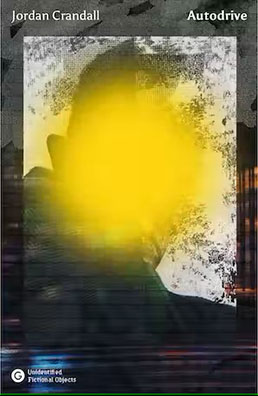Autodrive
Jordan Crandall
Publication
Autodrive is a work of literary fiction that melds techno-scientific inquiry and storytelling, critical theory and comedy, speculative fiction and satire. It is a road novel of sorts, an odyssey along the highways at a time when a new form of superintelligence has emerged. This new form of artificial intelligence is not entirely distinct from the characters in the narrative—it is ingrained in the machines they already use, the vehicles they already take, the systems they are already part of, but cannot fully see. The human character who is typically at the center of the fictional world gives way to an eccentric cast of performers—an ensemble of people and machines.
Suddenly the auto-mobile like an ancient god reasserts its agency, enchantment, and control of the everyday in this marvelously imaginative work by Jordan Crandall
Crandall’s novel sits at the intersection of speculative fiction, technological and critical theory, and narrative/aesthetic exploration. Potential futures of a society rife with autonomous machines, algorithmic formulation of experience, and human subjects remade through machine intelligence, robotics and artificial agency are teased out. The book explores the dense terrain of academic inquiry into human/non-human units and interdependencies and does so through a work of literary fiction that fits into the genre loosely known as “the novel of ideas.” The register of the novel operates in satire, the comedic grotesque, speculative futures, philosophical discourse, social critique, theoretical interpretation, and narrative experimentation. The polyphonic capacities of novels since Woolf and Joyce and others to slip-slide and sluice between narrative perspectives and rhetorical voice suits the intricacies of the multi-causal, classically overdetermined, state of many ineluctably intertwined forces operative in the novel’s various foci: human, non-human, technological, computational and embodied. Also it is a cracking read!
Literary treatments of A.I. are critically important in envisioning the challenges and opportunities of our human-machine futures. The narrative voice of Autodrive captures the merging of human and machine that is coming to pass, immerses reader in that transition.
Jordan Crandall has led the way for critically understanding technology in constructing representation, and in its critique, revealing not only aspects of our experiences but a fundamental shift in our sense of self.
